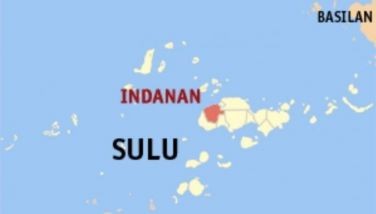Progress in Iraqi hotbed may lead to US troop cut: commander
WASHINGTON (AFP) - The US surge strategy is making "definitive progress" in one of Iraq's most fiercely contested provinces, and US troops there could be reduced as early as January, a commander said yesterday.
Major General Benjamin Mixon said the six US combat brigades in an area of northern Iraq that includes war-torn Diyala province could be cut in half over a 12- to 18-month period beginning in January.
"I think that over time in a very methodical and well thought-out way -- and I'm only speaking for MultiNational Division North -- we could have a reduction of force that could begin in January 2008," Mixon said via videolink from Iraq.
Mixon said a "minimum force" would be needed to work with the Iraqi security forces, assist them if required, and provide attack aircraft, air transport and medical support.
"I currently have five or six brigades," he said. Though he did not specify the number of soldiers involved, a typical brigade can contain around 3,500 troops, meaning the number of troops currently deployed there would be in the range of 17,000 to 21,000.
"Given the enemy situation and as you move forward, after about an 18 month period of time you could probably reduce that by about half," he said.
Mixon said it was his "military opinion" that it would be a mistake to reduce those forces before January.
However, Defense Secretary Robert Gates sidestepped questions about possible troop reductions at a Pentagon news conference, saying of Mixon's remarks, "That's the first I've heard of it."
Longer-term projections of US force levels in Iraq, Gates said, would depend on conditions on Iraq and terms of whatever security arrangements are negotiated with the Iraqi government.
Democratic-led demands that US combat force start coming out of Iraq as early as this fall has put the administration on the defensive over a surge strategy that it says is only beginning to take full force.
A US report to Congress Thursday found uneven progress in meeting a series of political and security benchmarks in Iraq despite the deployment of 30,000 additional US troops to Iraq.
"It seems to me, we should first decide what we want the end state to be in Iraq, and how is that end state important to the United States of America, to this region and to the world, and then determine how we can reach that end state and how much time that will take," Mixon said.
"To me that seems to be the most important thing because there will be consequences of a rapid withdrawal from Iraq."
The general commands an area north and east of Baghdad that has seen intensive combat in recent weeks against insurgent havens in Baquba, the capital of Diyala province, and surrounding areas.
In May, Mixon said he needed more troops to deal with an influx of insurgents from Baghdad, and was given two additional Stryker combat brigades to mount a major offensive called "Arrowhead Ripper."
"Now that the surge has reached its full strength we are seeing definitive progress," Mixon said.
"But the military options are part of that. There are political things that have to be accomplished. Most important we have to win the confidence of the Iraqi people."
Mixon also pointed to progress in northern Nineveh province, which also falls under his command, saying he has recommended that it be turned over to Iraqi security control in August.
In Diyala, US and Iraqi forces cleared western Baquba block by block to uproot Al-Qaeda in Iraq forces who Mixon said used over 100 kinds of roadsidebombs to defend their enclaves.
Al-Qaeda courts, safehouses, torture houses, medical clinics, bomb making facilities and 45 weapons caches were uncovered in the operation, he said. Outside the city, the bodies of 15 people were found at one "atrocity site."
Mixon said Al-Qaeda in Iraq used Baquba to support its operations in Baghdad.
Ninety Al-Qaeda in Iraq operatives were killed in the operation, and 130 detained, according to Mixon.
- Latest
- Trending




























